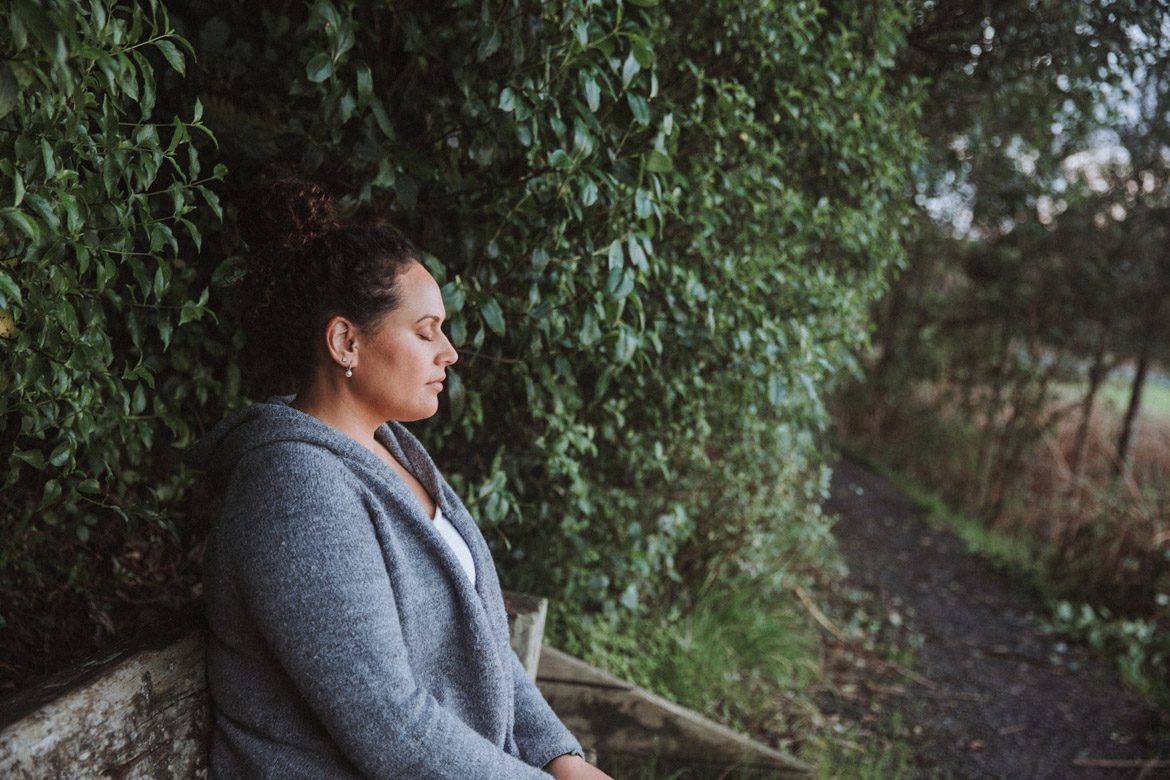Speaking from the foothills of the Himalayas, New Zealand’s Vedic Meditation master, Lauren Godfrey, weighs in on the prenatal and postnatal benefits of the technique she teaches. We also hear from two of her students on their experience with meditation in motherhood.

Can you tell us about your work helping sleep-deprived mums recharge?
Yes! Working with mums is one of my greatest joys and I believe meditation is an absolute must for sleep-deprived mums!
Vedic Meditation allows you to move into a deep metabolic rate of rest, so it’s like having a nap but more restful and energising. Meditation becomes even more useful when combating sleep deprivation because new mums can add this deep rest technique into their daily routine.
They can meditate in the middle of the night while breastfeeding and use it to get back to sleep after putting babies down. I teach parents of new babies to “catch it when you can”, having ten minutes here and there throughout the day and evening helps to energise the body.
What physical and emotional effects can mums expect?
Meditation helps to produce bliss chemistry in the body (anandamide, serotonin, oxytocin, dopamine) and reduces stress chemistry in the body (adrenalin, cortisol and lactic acid). This is really helpful for reducing postpartum depression and also for bringing on breast milk.
When women are meditating during pregnancy they are feeling calmer and producing less stress in the body, which naturally helps to reduce stress chemistry in utero. Less stress chemistry generally means better sleep and more rest at night so mothers are feeling happier and bonding better with baby.
But how can new mums fit it all in?
Rest is so important in the postpartum period. The body has been through so much change and is very depleted. The biggest advice that I give to all mums is to prioritise getting their meditation in first before unloading the dishwasher, taking the washing out and getting work emails done, etc. It only ever works in our favour.
Vedic meditators always report that everything that comes after meditation is so much better. We are more efficient, prioritise better, feel calmer and have greater patience and energy for the family.
For those who don’t have a meditation practice, what are some tips you can offer them?
So if you’re not meditating yet, then finding other ways to get some rest in is so important. Closing the eyes and bringing your attention to your breath, sitting still with a cup of tea or lying down for a nap are all helpful things to do.
Can you tell me a bit more about Vedic Meditation and the benefits regular practitioners can expect?
Supported by scientific research and based on an ancient body of knowledge, sitting comfortably in a chair with our back supported, Vedic Meditation is a natural and easy meditation technique that triggers a physiological effect in the brain and body, allowing the mind to settle down straight away into a state of restful alertness.
This unique state which has been found to be up to five times more restful than deep sleep, allows the body to naturally dissolve its built-up stress and fatigue, bringing about greater levels of health, happiness, creativity and calm.
How does Vedic Meditation differ from other forms of meditation?
The main difference between Vedic Meditation and other meditation techniques is its simple and effective approach. In Vedic Meditation, it is all about being effortless!
We don’t try hard, thoughts are allowed, the mind can wander and it’s so easy that anyone can do it. We don’t have to try and be mindful in life because the meditation technique itself naturally makes us more mindful and in the present moment.











